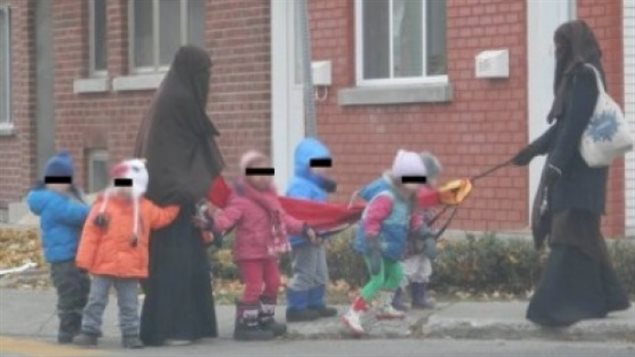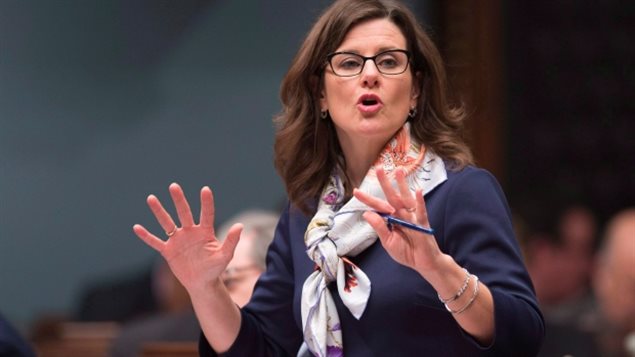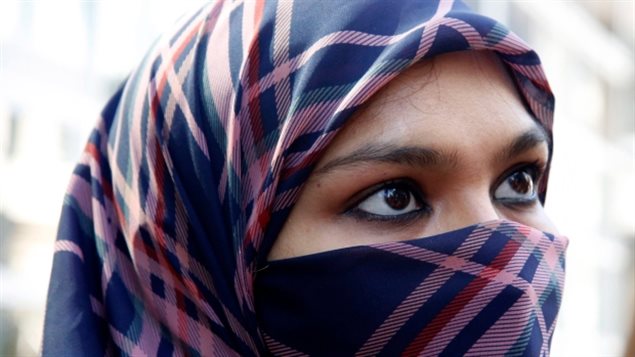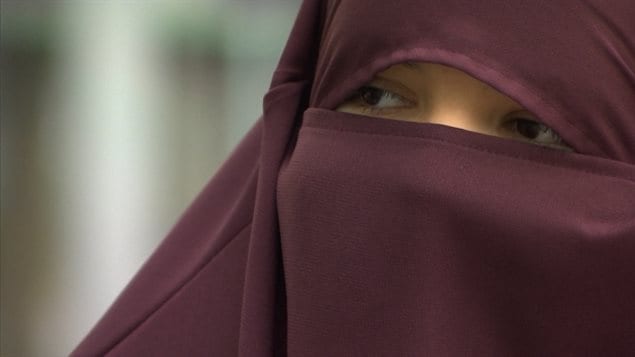A controversial law was passed in the Quebec provincial legislature today.
Known as Bill 62, the law will ban face coverings when people receive government services, and prohibit public workers from covering their faces.

This includes workers like teachers, medical staff, day-care workers, and anyone giving or receiving provincial government services, such as driver’s licence offices, and even anyone riding on public transit.
The law is called, “An Act to foster adherence to State religious neutrality and, in particular, to provide a framework for requests for accommodations on religious grounds in certain bodies (modified title)”
Niqabs, burkas, and protester face covering banned
Quebec Justice Minister Stéphanie Vallée, speaking to the CBC, said the law was needed for “communication reasons, identification reasons and security reasons”.
The law bans clothing covering the face, such as the muslim niqab, or burka, although it doesn’t actually mention those items.
It also bans face coverings by protesters.

Vallée said there will be exemptions for “serious” requests on religious grounds, although what might constitute a serious request is not clear.
Transit workers also are demanding clear guidelines on the rules as they see themselves being put into an unpopular and difficult position of policing such a rule.
The idea of banning face coverings became a controversy in the federal election in 2015 when Zunera Ishaq of Mississauga, near Toronto, sought to take her oath of citizenship while wearing the niqab. The former government wanted the case taken to the Supreme Court, but the incoming Liberal government of Justin Trudeau said it would not pursue the case and the woman was allowed to keep her face covered during the citizenship ceremony.

Now that the law has passed, aworking group will be struck to examine various scenarios and offer advice as to what service providers should do in cases where a face is covered.
Additional information- sources
- Govt of Quebec: Bill 62-
- CBC: B Shingler: Oct 16/17: even bus ride
- Toronto Star: S Paradkar: Oct 18/17: Op-Ed; stay out of women’s closets
- Montreal Gazette: P Authier: Oct 17/17: even on the bus
- Global TV: R Fletcher: Oct 18/17; impose religious neutrality
- CBC: Krishnan-Shingler: Oct 18/17: bus drivers want clarification







For reasons beyond our control, and for an undetermined period of time, our comment section is now closed. However, our social networks remain open to your contributions.